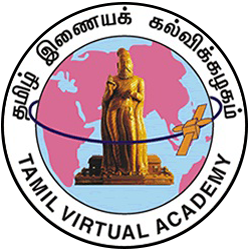Researchers in folklore formulated a few steps
which became the basic principles.
The ideology in folklore comprises various principles
and their bases. For example, the standard of life of these people
can be seen from the use of the word Karpu which insists on ‘One
woman for one man’. Folklore experts formulate these theories based
on several paradigms evolved from sciences and social sciences,
Evolutionism, naturalism and historical reconstruction provided
guidelines for diachronic and synchronic theories.
Environmental theories are concerned with the
events, period, time and season. Verbal behaviour and role-playing
and ego are studied from the language used and performance made
by people. Cultural, societal, semantic, institutional and communication
contexts are used to research folklore. Social base. individual
context and context of situation contribute a lot to this development.
Thus on learning this lesson you will be equipped
with scholastic tools and techniques to analyse the structure and
composition of folk literature.


